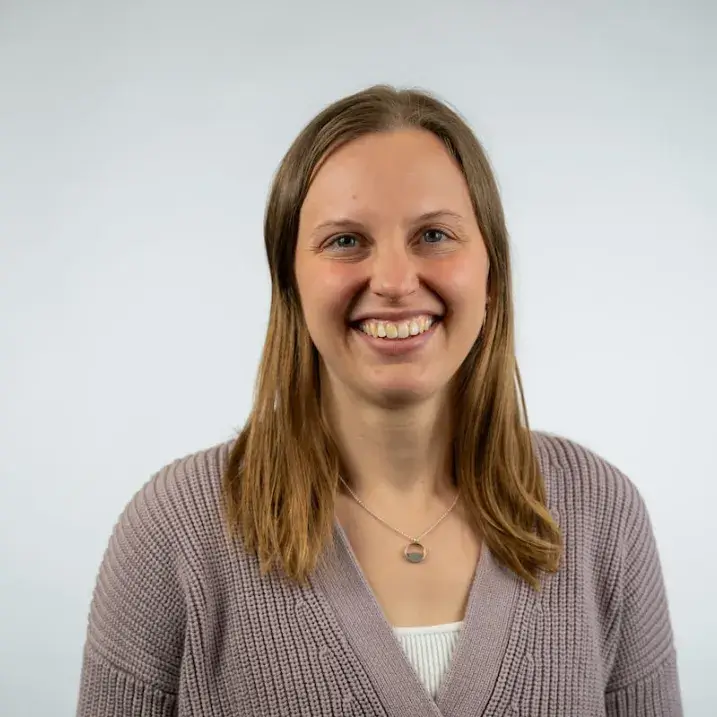149 Beaumont Ave
Firestone Medical Research Building
Larner College of Medicine
Burlington, VT 05405
United States
- Ph.D., Cellular, Molecular, and Biomedical Science, University of Vermont
- B.A., Neuroscience, Northern Michigan University
Department of Medicine, Division of Hematology and Oncology
University of Vermont Cancer Center
Areas of expertise
- The design and implementation of science education programming
- Using science communication to reach a broad audience
Dr. Queen's recent publications
Marquis C, Fonseca CL, Queen KA, Wood L, Vandal SE, Malaby HLH, Clayton JE, Stumpff J. Chromosomally unstable tumor cells specifically require KIF18A for proliferation. Nat Commun. 2021; 12(1):1213. doi: 10.1038/s41467-021-21447-2. PMID: 33619254; PMCID: PMC7900194.
Queen KA, Cario A, Berger CL, Stumpff J. Modification of the neck-linker of KIF18A alters microtubule subpopulation preference. Molecular Biology of the Cell. 2024; 35(3). doi:10.1091/mbc.e23-05-0167. PMID: 37903223.
Schutt KL*, Queen KA*, Fisher K, Budington O, Aswad F, Joseph J, Stumpff J. Identification of the KIF18A alpha-4 helix as a therapeutic target for chromosomally unstable tumor cells. Frontiers in Molecular Biosciences. 2024; 11. doi: 10.3389/fmolb.2024.1328077. *denotes equal contribution.
Phillips AF, Zhang R, Jaffe M, Schulz R, Verma A, Feinberg T, Arensman M, Chiu A, Letso R, Bosco N, Carty MC, Bettigole S, Andreu C, Drutman S, Queen KA, Racela AR, Stumpff J, Su M, Cogan D, Eng CH. Targeting chromosomally unstable tumors with a selective KIF18A inhibitor. Nature Commun. 2025
BIO
Dr. Queen’s work focuses on science education and communication. She is passionate about inspiring a future generation of STEM scientists by engaging high school and undergraduate students in immersive STEM experiences. As Deputy Associate Director for Cancer Research Training and Education Coordination she oversees numerous education programs including the implementation of a mobile laboratory that will bring research experience to rural Vermont. Dr. Queen also works to increase the impact of cancer research through the generation of accessible stories and programs. One example of her communication work is a SciArt exhibit which debuted in the UVMCC clinic space in 2025, featuring artist renditions of scientific research images.
Dr. Queen's Professional Memberships
Member, Association for Women in Science
Member, American Society for Cell Biology
Bio
Dr. Queen’s work focuses on science education and communication. She is passionate about inspiring a future generation of STEM scientists by engaging high school and undergraduate students in immersive STEM experiences. As Deputy Associate Director for Cancer Research Training and Education Coordination she oversees numerous education programs including the implementation of a mobile laboratory that will bring research experience to rural Vermont. Dr. Queen also works to increase the impact of cancer research through the generation of accessible stories and programs. One example of her communication work is a SciArt exhibit which debuted in the UVMCC clinic space in 2025, featuring artist renditions of scientific research images.
Dr. Queen's Professional Memberships
Member, Association for Women in Science
Member, American Society for Cell Biology
